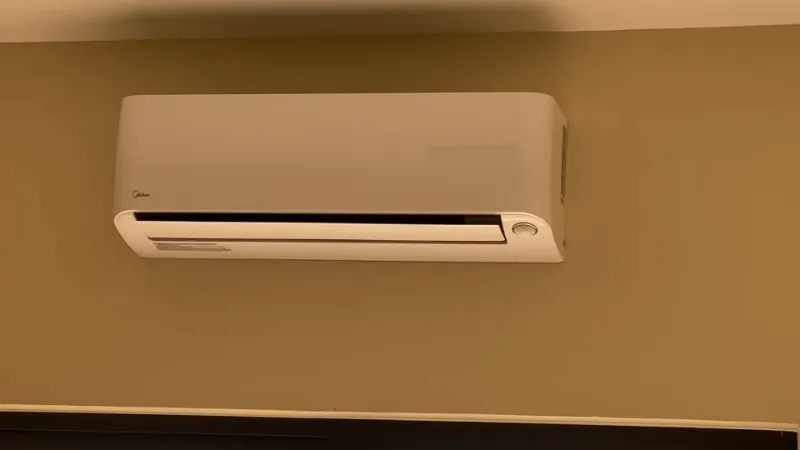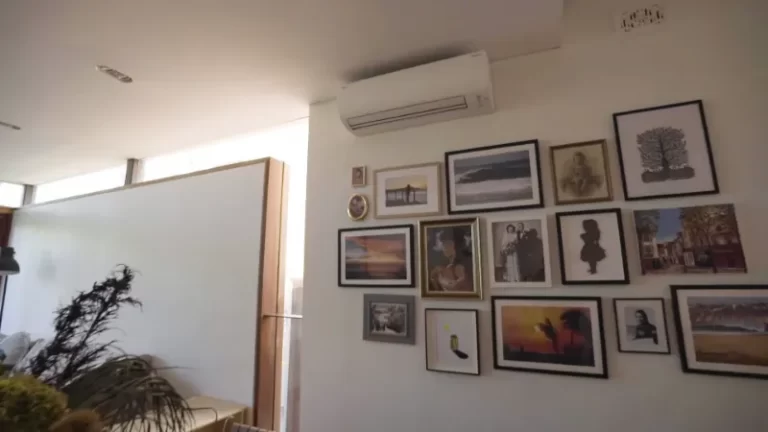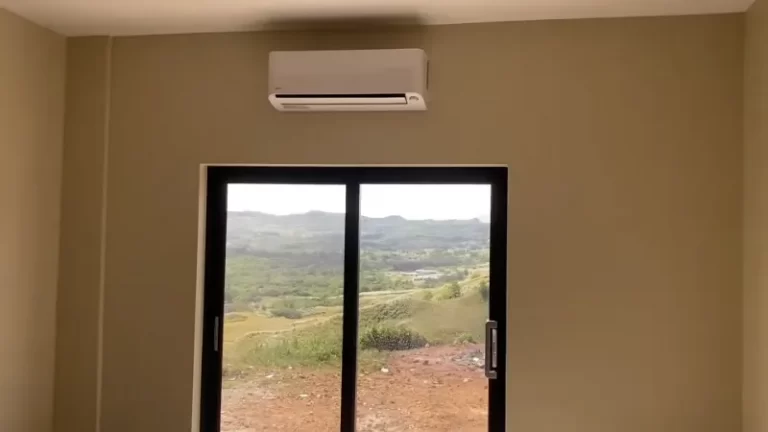Will a 3000w Inverter Run an Air Conditioner? Why Choose Inverter?
When it comes to off-grid living, choosing the right inverter to run your appliances is crucial. One of the biggest concerns is whether an inverter can run an air conditioner, which is a high-power consuming device.
While there are several options available, many people wonder if a 3000-watt inverter is sufficient to power their AC. In this article, we’ll explore this question and provide you with the information you need to make an informed decision.
You'll Learn About
Will a 3000w Inverter Run an Air Conditioner?
When it comes to sizing an inverter to run your air conditioner, the main factor to consider is the inverter’s power output. Air conditioners can require a significant amount of power to operate, so it’s important to choose an inverter that is powerful enough to handle the load.
Yes, A 3000-watt inverter is generally considered to be capable of running a mid-sized air conditioner. However, it’s important to note that the actual power requirements of your air conditioner may vary depending on factors such as its size, efficiency, and operating conditions.
Before purchasing an inverter, it’s important to check the power consumption rating of your air conditioner. This information can usually be found on the unit’s label or in the owner’s manual. You should also make sure that the inverter you choose is a pure sine wave inverter, as this type of inverter provides cleaner, more stable power than a modified sine wave inverter.
Additionally, you will need to make sure that the inverter is compatible with your battery bank or generator, and that it can handle the voltage and amperage requirements of your air conditioner. It’s also a good idea to choose an inverter that has additional features such as overload protection and temperature control to help prevent damage to the unit and ensure safe operation.
In summary, a 3000-watt inverter may be suitable for running a mid-sized air conditioner, but it’s important to consider your specific requirements and choose an inverter that is compatible with your equipment and provides clean, stable power for reliable operation.

Understanding Inverter Power Output
An inverter is an electronic device that converts direct current (DC) power from a battery or solar panel into alternating current (AC) power that can be used to run electrical devices. In other words, it is a device that changes the form of electrical energy.
Understanding the power output of an inverter is crucial to ensure that the inverter can provide the necessary power to run your appliances. The power output of an inverter is usually measured in watts and refers to the amount of power that the inverter can supply continuously. This is known as continuous power, and it represents the maximum amount of power that the inverter can provide over an extended period of time without overheating or shutting down.
Surge power, on the other hand, refers to the maximum amount of power that an inverter can supply for a short period of time, usually a few seconds, to start an appliance with a high startup power requirement. For example, an air conditioner requires a significant amount of power to start, but once it is running, it requires less power to continue operating. Surge power is usually higher than the continuous power rating of the inverter and is indicated in the inverter’s specifications.
It is important to note that not all appliances have the same power requirements. Some appliances, such as refrigerators and air conditioners, require high power, while others, such as laptops and mobile phones, require low power. Therefore, it is crucial to understand the power requirements of each appliance and select an inverter that can handle the maximum power load of all your appliances combined.
In summary, understanding inverter power output is essential to ensure that your inverter can supply enough power to run your appliances. The continuous power rating indicates the maximum power that the inverter can provide over an extended period of time, while the surge power rating indicates the maximum power that the inverter can provide for a short period to start high power appliances. It is important to choose an inverter that can handle the maximum power load of all your appliances combined to avoid overloading the inverter and potentially causing damage to your appliances or the inverter itself.
Determining Air Conditioner Power Consumption
Air conditioners are power-hungry appliances that can consume a significant amount of electricity. Before sizing an inverter to run your air conditioner, it is essential to determine its power consumption. The power consumption of an air conditioner depends on several factors, including its size, efficiency, temperature settings, and usage patterns.
Factors That Influence Air Conditioner Power Consumption
Size: The size of the air conditioner is one of the most significant factors that influence power consumption. A larger air conditioner will consume more power than a smaller one, even if they have the same efficiency rating.
Efficiency: The efficiency rating of an air conditioner, measured by its Seasonal Energy Efficiency Ratio (SEER), affects its power consumption. The higher the SEER rating, the more efficient the air conditioner, and the less power it will consume.
Temperature settings: Lower temperature settings require more energy to cool the air, resulting in higher power consumption.
Usage patterns: How often and for how long the air conditioner is used can also affect its power consumption. For example, running an air conditioner for an extended period, such as during the hottest part of the day, will consume more power than running it for a shorter period.
Determining the Power Consumption of Your Air Conditioner
To determine the power consumption of your air conditioner, you will need to locate the unit’s power rating label. This label is typically located on the back of the air conditioner or in the owner’s manual. The label will provide information on the air conditioner’s voltage, amperage, and wattage.
To calculate the power consumption in watts, multiply the voltage by the amperage. For example, if your air conditioner has a voltage of 120V and an amperage of 10A, its power consumption would be 120V x 10A = 1200W.
Typical Power Consumption Ratings for Air Conditioners
The power consumption of air conditioners can vary significantly depending on their size and efficiency. However, as a general rule of thumb, a 5000 BTU air conditioner typically consumes around 500-600 watts, while a 12,000 BTU air conditioner can consume between 1000-1500 watts. It is essential to check your air conditioner’s power rating label for precise information on its power consumption.
Choosing the Right Inverter for Your Air Conditioner
Choosing the right inverter is crucial for running your air conditioner smoothly and efficiently. One of the most important considerations when choosing an inverter is ensuring that it is a pure sine wave inverter. This type of inverter produces a clean and stable AC power output, which is essential for sensitive electronics and appliances like air conditioners.
Another factor to consider when selecting an inverter for your air conditioner is the voltage and amperage requirements of the unit. Your air conditioner will typically have a label or plate that specifies the voltage and amperage needed to operate it. Ensure that the inverter you choose is compatible with these specifications to ensure optimal performance.
Additionally, it is essential to consider the power rating of the inverter, which determines the amount of power that the inverter can continuously deliver to your air conditioner. Ensure that the inverter is rated higher than the air conditioner’s maximum power consumption to avoid overloading the inverter.
It is also essential to choose an inverter that has overload protection and temperature control features. Overload protection will automatically shut off the inverter if it detects an overload, which helps to protect the inverter and your air conditioner from damage. Temperature control features help to ensure that the inverter operates within a safe temperature range, which also helps to prevent damage.
Lastly, consider the brand and quality of the inverter before making a purchase. Cheaper inverters may be tempting, but they may not last as long or offer the same level of performance and safety features as higher-end models. Opt for a reputable brand and ensure that the inverter is of good quality to ensure optimal performance and longevity.
Can a 3000-watt Inverter Run an Air Conditioner?
When it comes to running an air conditioner with an inverter, one of the most important factors to consider is the inverter’s power output. While a 3000-watt inverter may be suitable for some air conditioners, it’s not a one-size-fits-all solution.
The suitability of a 3000-watt inverter for running an air conditioner depends on the power requirements of your particular air conditioner. Air conditioners come in a range of sizes and power requirements, and these can vary greatly. Some smaller air conditioners may only require a few hundred watts of power, while larger units can require several thousand watts.
It’s important to note that the actual power requirements of your air conditioner may vary based on a number of factors, including the size of your space, the ambient temperature, and the level of insulation in your home. This means that while a 3000-watt inverter may be suitable for running your air conditioner in some conditions, it may not be sufficient in others.
When choosing an inverter for your air conditioner, it’s important to consider the specific voltage and amperage requirements of your unit. Most air conditioners will have this information listed on the unit or in the owner’s manual. It’s important to choose an inverter that can handle the specific power requirements of your air conditioner, as using an inverter that is too small can result in damage to both the inverter and the air conditioner.
In addition to power output, it’s also important to choose an inverter with overload protection and temperature control features. Overload protection can help prevent damage to the inverter if the air conditioner draws more power than the inverter can handle. Temperature control features can help prevent the inverter from overheating, which can also lead to damage.
While a 3000-watt inverter may be suitable for some air conditioners, it’s important to consider the specific power requirements of your unit and choose an inverter that can handle those requirements. Additionally, choosing an inverter with overload protection and temperature control features can help ensure safe and reliable operation.
Other Considerations for Running an Air Conditioner With an Inverter
Inverters have made it possible to run various appliances, including air conditioners, using batteries or solar power. In the previous sections, we have discussed how to determine the power requirements of your air conditioner and how to choose the right inverter to run it.
However, there are some other considerations that you should keep in mind when running an air conditioner with an inverter. In this section, we will discuss the advantages and disadvantages of using an inverter to power your air conditioner, the importance of having a battery bank or generator, and some tips for using and maintaining your air conditioner with an inverter.
Advantages and Disadvantages of Running an Air Conditioner With an Inverter:
Running an air conditioner with an inverter has both advantages and disadvantages. One of the main advantages is that it can save you a significant amount of money on your energy bills, especially if you live in an area where electricity prices are high.
In addition, using an inverter to power your air conditioner is environmentally friendly since it reduces your carbon footprint. Another advantage is that using an inverter allows you to run your air conditioner even when there is a power outage.
However, there are also some disadvantages to using an inverter to power your air conditioner. One of the main disadvantages is that you may need a large battery bank or generator to provide enough power to run your air conditioner.
This can be expensive, and it may not be feasible for everyone. In addition, some air conditioners may not work well with inverters, and they may require a lot more power than the inverter can provide.
Importance of Having a Battery Bank or Generator:
As mentioned earlier, you may need a large battery bank or generator to power your air conditioner with an inverter. The size of the battery bank or generator you need will depend on the power requirements of your air conditioner and how long you need to run it.
If you are using a battery bank, it is important to make sure that the batteries are charged fully before running the air conditioner. You should also avoid over-discharging the batteries, as this can damage them and shorten their lifespan.
Tips for Maintaining and Using Your Air Conditioner With an Inverter:
To ensure that your air conditioner runs smoothly with an inverter, there are several tips that you should keep in mind. First, you should make sure that the inverter is installed properly and that all the connections are secure. You should also monitor the temperature of the inverter, as it can get hot when it is running at high power levels.
Second, you should keep your air conditioner well-maintained, including cleaning the air filter and checking the refrigerant levels. This will help ensure that your air conditioner is running efficiently and does not require more power than necessary.
Finally, you should also be mindful of the power requirements of other appliances and devices that are connected to the inverter. Running multiple devices at the same time can put a strain on the inverter and reduce its overall efficiency.
Running an air conditioner with an inverter has both advantages and disadvantages, and it is important to weigh these carefully before making a decision. If you decide to use an inverter, it is important to choose the right one for your air conditioner, have a large enough battery bank or generator, and follow proper maintenance and usage practices to ensure that everything runs smoothly.
Typical Air Conditioner Power Consumption Ratings
| Air Conditioner Type | Cooling Capacity (BTU) | Power Consumption (Watts) |
|---|---|---|
| Window Unit | 5,000-12,000 | 500-1,500 |
| Split System | 12,000-24,000 | 1,000-2,500 |
| Central Air | 24,000-60,000 | 2,500-7,500 |
Note: These power consumption ratings are estimates and can vary depending on factors such as the age and efficiency of the air conditioner, as well as the temperature and humidity of the environment. It is important to refer to the manufacturer’s specifications for accurate power consumption information.
Can I Run Multiple Air Conditioners With One Inverter?
It depends on the power output of the inverter and the total power consumption of the air conditioners. If the combined power consumption of the air conditioners is within the maximum continuous power output of the inverter, then it may be possible to run multiple air conditioners with one inverter.
however, it is important to ensure that the inverter can handle the starting surge power of all the air conditioners to prevent overload and damage to the inverter.
Can I Use a Modified Sine Wave Inverter to Run My Air Conditioner?
It is not recommended to use a modified sine wave inverter to run an air conditioner, as these types of inverters can produce a lower quality waveform that may cause issues with the operation of the air conditioner.
Additionally, some air conditioner manufacturers may explicitly state that their products are not compatible with modified sine wave inverters. It is best to use a pure sine wave inverter for running an air conditioner. You might want to run ACs 24/7, but it’s not so good idea.
How Long Can I Run My Air Conditioner on an Inverter?
The amount of time you can run your air conditioner on an inverter depends on the capacity of your battery bank or generator, as well as the power consumption of the air conditioner. It is important to calculate the estimated run time based on the capacity of your battery bank or generator and the power consumption of the air conditioner to prevent over-discharging of the battery or overloading the generator.
Can I Run a Central Air Conditioning System With an Inverter?
It may be possible to run a central air conditioning system with an inverter, but this will depend on the power requirements of the system and the capacity of the inverter. Central air conditioning systems typically require a high power output, and may require a larger inverter or multiple inverters to run effectively.
it is best to consult with a professional to determine the feasibility of running a central air conditioning system with an inverter. Also, you should choose good air conditioners.
How Can I Troubleshoot Issues With My Air Conditioner When Running It With an Inverter?
If you are experiencing issues with your air conditioner when running it with an inverter, there are several things you can check. First, ensure that the inverter is capable of handling the power requirements of the air conditioner, and that the battery bank or generator is providing sufficient power.
check the wiring and connections to make sure they are secure and not damaged. Finally, check the air conditioner itself for any issues, such as clogged filters or low refrigerant levels. If you are unable to diagnose and fix the issue, it may be necessary to consult with a professional.
Conclusion
Whether a 3000-watt inverter can run an air conditioner depends on various factors such as the power consumption of the air conditioner, the efficiency of the inverter, and the specific model of the air conditioner.
It is important to understand the power requirements of your air conditioner, choose a suitable inverter with adequate power output, and follow proper maintenance and usage tips to ensure optimal performance.
It is also crucial to consider the advantages and disadvantages of running an air conditioner with an inverter, such as cost savings and environmental benefits, versus the need for additional equipment and potential limitations in power output.
By carefully considering all these factors, you can make an informed decision about whether a 3000-watt inverter is right for your air conditioning needs.



